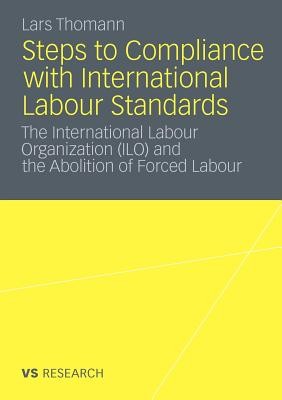
- We will send in 10–14 business days.
- Author: Lars Thomann
- Publisher: VS Verlag für Sozialwissenschaften
- Year: 2011
- Pages: 384
- ISBN-10: 3531166689
- ISBN-13: 9783531166681
- Format: 14.8 x 21 x 2 cm, minkšti viršeliai
- Language: English
- SAVE -10% with code: EXTRA
Steps to Compliance with International Labour Standards (e-book) (used book) | bookbook.eu
Reviews
Description
For more than nine decades, the International Labour Organization (ILO) has been responsible for setting up, monitoring, and implementing international labour standards in order to ensure that workers around the globe enjoy minimum social protection and workers' rights. Lars Thomann examines the ILO's wide ranging efforts to achieve compliance with international labour standards adopted by the organization and ratified by its member states. The author draws on different compliance schools of various strands of international relations theory and discusses them against the background of the ILO's compliance efforts in general and regarding the abolition of forced labour in particular. He shows that even though the ILO has experience in bringing about compliance - given its seniority - and is in many cases successful in doing so, it is not well equipped to deal with persistent cases of non-compliance.
EXTRA 10 % discount with code: EXTRA
The promotion ends in 21d.04:45:22
The discount code is valid when purchasing from 10 €. Discounts do not stack.
- Author: Lars Thomann
- Publisher: VS Verlag für Sozialwissenschaften
- Year: 2011
- Pages: 384
- ISBN-10: 3531166689
- ISBN-13: 9783531166681
- Format: 14.8 x 21 x 2 cm, minkšti viršeliai
- Language: English English
For more than nine decades, the International Labour Organization (ILO) has been responsible for setting up, monitoring, and implementing international labour standards in order to ensure that workers around the globe enjoy minimum social protection and workers' rights. Lars Thomann examines the ILO's wide ranging efforts to achieve compliance with international labour standards adopted by the organization and ratified by its member states. The author draws on different compliance schools of various strands of international relations theory and discusses them against the background of the ILO's compliance efforts in general and regarding the abolition of forced labour in particular. He shows that even though the ILO has experience in bringing about compliance - given its seniority - and is in many cases successful in doing so, it is not well equipped to deal with persistent cases of non-compliance.


Reviews